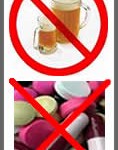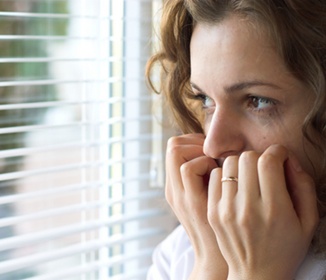Social anxiety or similarly known as social phobia is associated with severe fear and embarrassment when presented with social situations. Though being nervous in front of many people is considered normal, social anxiety exhibits unreasonable fear of being watched by people around.
What is Social Anxiety?
Social anxiety is a disorder considered as a chronic mental condition wherein a person displays extreme and irrational fear of doing social functions. Though, it is considered normal to feel nervous in certain occasions but the difference with social phobic person is that a person may develop unfounded belief of being judge and criticize. Because of these beliefs, they tend choose to be alone and avoid any social activities.
Social phobic person may form distorted thinking about social situations that affects daily activities. A sufferer is constantly afraid of doing even ordinary and normal activities. Â Some of common activities that they may avoid are:
- Eating or drinking in front of other people
- Ordering food in a restaurant
- Writing and working with the presence of other people
- Getting all the attention
- Afraid of going out on dates
- Going to public restroom
- Receiving phone calls
- May not accept job interview
The behavior and reaction of people with social anxiety are somewhat unnatural and may be related to other mental ailments like obsessive-compulsive disorder and depression.
What are the Causes of Social Anxiety?
Social anxiety is due to various reasons. Some of known causes are:
- Genetics plays a hand in social anxiety. Patients who have social anxiety may also have other families who suffer the same disorder.
- Chemical imbalance found in the brain. Serotonin is a brain chemical that works as neurotransmitter and any imbalance of serotonin may cause social anxiety.
- Structure of the brain particularly the amygdala plays a key role in controlling anxiety of a person. If amygdala becomes overactive, a person may develop excessive responses to ordinary circumstances.
- Trauma is another reason why a person becomes over sensitive to being criticize or humiliated. Other factors like child abuse may also increase fear and anxiety. Until the negative emotions are dealt and properly healed, social anxiety may continue to confront patients.
What are the Symptoms of Social Anxiety Disorder?
Social phobic person shows physical and behavioral symptoms of social anxiety. Â Some of physical symptoms are:
- Dry mouth
- Excessive perspiration
- Cold hands
- Trembling voice
- Frequent urination
- Diarrhea
- Easily get confused
- Shortness of breath
Some of the behavioral symptoms of social anxiety include:
- Unreasonable fear of being with other people
- Too much worrying about getting embarrass
- Fear that affects daily activities
- Avoid talking or meeting other people
- Avoids eye contact
Severe social anxiety disorder needs medical attention especially if it hinders day-to-day activities and alters life decisions. Severe social anxiety may cause:
- Sensitivity even to slight criticism
- Poor self esteem
- Degrade worth of oneself
- Inability to communicate properly
- Severe absences from work
- Poor academic record
- Alcoholism
- Suicidal tendencies
What are the Treatments of Social Anxiety?
1. Cognitive behavioral therapy
 Cognitive behavioral therapy is the leading treatment of social anxiety. This kind of therapy teaches a person how to develop proper thoughts about given situations. This may include some exposure to a situation that may have triggered some anxiety reactions. The doctor will expose the patient with the situation and help the sufferer deal with the reasons behind the fears.
Cognitive behavioral therapy is the leading treatment of social anxiety. This kind of therapy teaches a person how to develop proper thoughts about given situations. This may include some exposure to a situation that may have triggered some anxiety reactions. The doctor will expose the patient with the situation and help the sufferer deal with the reasons behind the fears.
           2. Medications
 Medications are given to lessen the level of anxiety. These are normally taken by patients prior any social activities. However, they are only allowed for a short period. Â Ask first your medical health provider before taking any social anxiety medications because the medications may bring out varied responses per patient.
Medications are given to lessen the level of anxiety. These are normally taken by patients prior any social activities. However, they are only allowed for a short period. Â Ask first your medical health provider before taking any social anxiety medications because the medications may bring out varied responses per patient.
           3. Relaxation Techniques
 Relaxation techniques like breathing exercises and yoga can help the person relieve all the anxiety and stress the person feel prior social functions.
Relaxation techniques like breathing exercises and yoga can help the person relieve all the anxiety and stress the person feel prior social functions.
4. Kava
 This herb can help a person feel more relax minus the effects of sedation. However, kava is related to liver issues in the past. This is not recommended to any one suffering from liver ailments.
This herb can help a person feel more relax minus the effects of sedation. However, kava is related to liver issues in the past. This is not recommended to any one suffering from liver ailments.
Â
           5. Vitamin B supplements
 Vitamin B supplements improve the productions of brain chemicals needed by the body. These can help in reducing any anxiety felt by a person with the disorder.
Vitamin B supplements improve the productions of brain chemicals needed by the body. These can help in reducing any anxiety felt by a person with the disorder.
Â
           6. Quit substance abuse
       Alcohol or drug abuse will only worsen your disorder. Quitting will greatly improve your condition. Ask support groups to help you deal and recover       from your substance abuse.
Alcohol or drug abuse will only worsen your disorder. Quitting will greatly improve your condition. Ask support groups to help you deal and recover       from your substance abuse.
These are treatments of social anxiety disorder. Normally treatments may last on a couple of months while there are some who are under medications for a long time. Ask your doctor for proper treatments and therapies for your condition.
